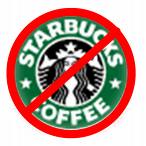Starbucks: a narrative
Columns - Posted on Saturday, April 26, 2008 18:07 - 3 Comments
A new American corporate presence on campus greeted students eager to start the new academic year. No, this wasn’t McDonald’s (which would never be accepted) or Coke (which has long been accepted) but something between the two – Starbucks.
For those who don’t know, Starbucks is a traditional vendor of fine coffees which has been greeted warmly by the café cultures on the continent. You can hardly go a day without hearing of another dozen caffès going bankrupt in Rome and Milan, as Italians flock to the superior American rival. Meanwhile in France, the quality of philosophical conversation in the Parisian Starbucks has been so high, it has developed a new post-Marxist school of thought (“Qui est le ‘Star’,” asks one of its most prominent thinkers, “et qui est le ‘Bucks’? Ca, c’est la question.”) To those who would refute this meta-narrative, and instead opine that Starbucks is frequented by the private- and public-schooled in Britain (who have lots of money, but little taste) and not in many places where people actually drink coffee, and know what it should taste like – I can only say, counter-snobbery is not very productive.
The debate was not, of course, about the coffee. The traditional activists were outraged, and launched an immediate campaign to smash the corporation, or at least shut down the outlet. Whether this campaign was to be launched as an integral part of establishing peace, justice and happiness in the world, or as a minor side issue, was not really addressed. But Starbucks would be demolished and power would return to the people. Eager activists grabbed their laptops and set up a Facebook group, thus confirming the campaign as an issue. Hundreds joined the virtual campaign. Almost ten joined the real one. A Fairtrade alternative was set up outside the library and staffed by dedicated volunteers. The great representative body of students, composed of its most worthwhile and excellent members, passed a motion recommending a Fairtrade alternative. The revolution had arrived.
But, as always, the revolutionary gusto failed to take into account the inevitable counter-revolution. And so it came. A private schoolboy set up a pro-Starbucks facebook group . Hundreds of reactionaries joined. They were the silent majority, they claimed. Even though they were apathetic about everything, we still had to take their opinions into consideration. This, their political advisors told them, was the beauty of democracy. And thus it was that two rival Facebook groups came into existence, with over one and half thousand members between them.
Meanwhile, there was consternation within the anti-Starbucks camp. Someone had artfully daubed ‘Starbucks supports apartheid in Israel’ on the library. This was “offensive, disrespectful vandalism”, said the anti-Starbucks organisers – we do not “wish our peaceful and non-disruptive campaign to be tarred with those who support such offensive tactics.” Many ardent supporters of Israeli apartheid must have gone home in tears to learn that Starbucks have been propping it up all along. How dare a lone graffitti artist suggest that state oppression is this fragile? But the disgust was mutual, and many labelled the self-appointed organisers of the campaign as establishmentarian, or worse, conservative. The group splintered. Militant fringe groups set up, only to leave the campaign and focus on worldwide socialist revolution.
The pro-Starbucks camp, untainted by ideology, has remained strong (it would be grossly immature to use Mussolini’s phrase ‘united in Fascism’ here). The results of a referendum have since recommended a fairtrade alternative to the university – yet the Starbucks flag remains solidly perched on the library wall. And so we come to a tentative finis. There is a parable here somewhere, possibly about good versus evil, but I doubt you’ll be able to find it.
3 Comments
Tim Siddiqui
Conor Byworth
You spend £140 on just one hoodie? Mein Gotts. I’ve bought whole sets of clothing for less than that. How exactly does mentioning the price validate your point, by the way?
Second of all, everyone thinks they have taste. Whether it’s true or not cannot be verified by stating that you believe you have it.
Jamal
Wild guess here, but I think the first guy was joking.



“Starbucks is frequented by the private- and public-schooled in Britain (who have lots of money, but little taste)”
I am positively outraged at such lude remarks. I am private schooled, British and rich, yet pride myself on in actual fact, having plenty of taste. Just recently I forked out £50 for a T-shirt, and £140 on a hoodie that is handmade.